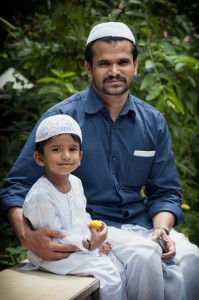 The majority of people who made the greatest contributions that impacted life as we know it today were self-educators. The likes of Benjamin Franklin, Michael Faraday, Abraham Lincoln, Nathaniel Bowditch, Thomas Edison, Herman Melville, Rabindranath Tagore and Leonardo da Vinci to name a few. Then we have those self-educating geniuses who live among us today such as Nobel Prize Winner Sir John Gurdon. Self-education was not the only thing these greats shared in common, they also had great mentors.
The majority of people who made the greatest contributions that impacted life as we know it today were self-educators. The likes of Benjamin Franklin, Michael Faraday, Abraham Lincoln, Nathaniel Bowditch, Thomas Edison, Herman Melville, Rabindranath Tagore and Leonardo da Vinci to name a few. Then we have those self-educating geniuses who live among us today such as Nobel Prize Winner Sir John Gurdon. Self-education was not the only thing these greats shared in common, they also had great mentors.
What is a Mentor?
A mentor is someone who sets the stage for transformation and who better to do this first in a child’s life than the parent. While other mentors will come into your child’s experience, you as their primary mentor will set the standard for continual success propelling them in the direction of their individual life purposes.
What if you don’t consider yourself mentor material? Being a mentor should come naturally to you; as you parent and create an inspiring learning environment, you foster rich learning opportunities. These learning opportunities are not limited to the home. As you mentor your children, they become self-learners equipped with the skills and a love for learning adapting to any experience. As a parent mentor, this will often require of you doing whatever it takes; always being there for your kids during support and challenge. It’s a drawing out of the student’s inner genius. As you and your children work together, you will be reaching the highest levels of learning based on a strong parent partnership.
 Mentoring takes the learning to deeper levels, whereas teaching is to help others gain knowledge or skill. While skill and knowledge is definitely needed in the learning process, mentoring takes you to greater depth and meaning, using well developed thinking skills, bringing together all learning and experiences to fulfill life purpose. Instead of skimming over the top, memorizing and testing, mentoring goes into how to think, carrying on transformational discussions and integrating highest values. Everything is done for more engagement that is specific to purpose. The mentored education becomes customized instead of generalized.
Mentoring takes the learning to deeper levels, whereas teaching is to help others gain knowledge or skill. While skill and knowledge is definitely needed in the learning process, mentoring takes you to greater depth and meaning, using well developed thinking skills, bringing together all learning and experiences to fulfill life purpose. Instead of skimming over the top, memorizing and testing, mentoring goes into how to think, carrying on transformational discussions and integrating highest values. Everything is done for more engagement that is specific to purpose. The mentored education becomes customized instead of generalized.
Having a parent as a mentor is a great blessing to the child and the entire family, because you are always learning and relating. It’s not only for the “school years,” it’s for life. Imagine if you knew how to help your child relate to his knowledge and skill connected to his genius, his calling in life and guide him to the ability to see all the opportunity that surrounds him. A family living together in this way becomes more loving, developing a bond that will passed on for generations to come.
Homeschooling is just as much for the parents as it is for the children. In my early years of homeschooling I quickly realized that if I’m going to give my children an excellent education and guide them to be their best, I have to step it up for myself and be fully charged, connected and ready to inspire.
This means that I have to first and foremost be clear on my mindset, and be a generator of positive energy if you will. There’s no time for victimhood or waiting on others. You must be the generator and strengthen your mind in order to strengthen theirs.
Children learn what they live so what you are living and modeling becomes their learning. As you strengthen your mindset, the children are naturally influenced by your actions. This is the absolute most effective way to learn, by modeling.
You can be a generator with a strong mentor mindset by implementing this 7 step practice which includes:
- Be in the moment
- Be future oriented
- Seek challenges
- Seek to connect
- Be self-reliant
- Express creativity
- Make it meaningful
Let’s look a little closer at what it means to seek challenges. This can be applied to academics by trying something new in life such as a sport or rock climbing. While at first glance it may only seem like a physical challenge, it will also challenge the mental faculties that translate over to academics. Both rock climbing and mathematics will require one to be willing to do what it takes even during the moments when it’s not fun or easy. Staying physical will help build mental agility as well.
Always look to seek challenges. We experience our greatest growth on the border of support and challenge. This is where learning occurs. If we don’t seek challenges that are aligned with our highest values and life’s purpose, we are limiting ourselves from experiencing a rich and fulfilling life.
Look into the eyes of your children. They are depending on you to mentor and guide them to their future, unlocking their true potential. As parents we must ask ourselves if the quality of our education matches their potential. Begin implementing the 7 practices to generate a strong mentor mindset and mentor your children to greater learning.
Parents Inspired to Action:
Choose one of the 7 practices to implement first. Do this for at least 27 consecutive days to create the habit before implementing the next practice. Do this in partnership with your children and observe how it all relates to current studies and purposeful living.
Observe your children and look for areas where they can naturally perform the 7 practices. Then notice how you can link their needs to a specific practice and implement it either individually or as a family.


